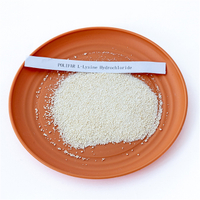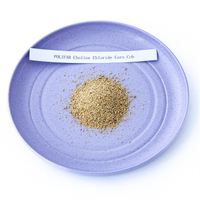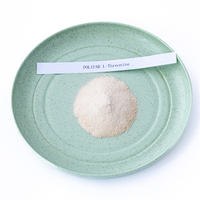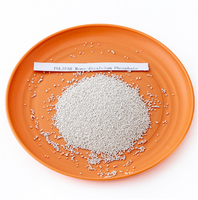Views: 0 Author: Site Editor Publish Time: 2025-02-08 Origin: Site








As consumer demand for healthier food options continues to grow, low-calorie sweeteners have become a major focus in the food industry. Among them, allulose stands out as a rare sugar that provides the taste and texture of regular sugar but with significantly fewer calories. At Polifar, we supply high-quality allulose to food manufacturers looking for an effective sugar alternative. This article explores the benefits, applications, and market potential of allulose in the food and beverage industry.

Allulose and sugar are both sweeteners, but they differ significantly in their chemical structure, caloric content, impact on metabolism, and overall health benefits. Understanding these differences is crucial for both consumers and food manufacturers who want to make informed decisions about sweetener choices.
1. Caloric Content:
One of the most significant differences between allulose and traditional sugar (sucrose) is their caloric content.
Sugar (Sucrose): Each gram of sugar contains approximately 4 calories. As a result, when used in foods and beverages, sugar contributes to total caloric intake and can lead to weight gain if consumed in excess.
Allulose: In contrast, allulose provides only 0.4 calories per gram, which is about 90% fewer calories than sugar. This makes it an ideal sweetener for calorie-conscious individuals or those looking to reduce their sugar intake without sacrificing sweetness.
2. Impact on Blood Sugar:
The way allulose and sugar affect blood sugar levels is another key point of difference.
Sugar (Sucrose): When consumed, sugar is rapidly absorbed into the bloodstream, causing a spike in blood sugar levels. This can lead to increased insulin production and may have negative implications for individuals with conditions such as diabetes or those following a low-carb or ketogenic diet.
Allulose: Unlike sugar, allulose has a glycemic index of zero, meaning it does not raise blood sugar or insulin levels. This makes allulose an excellent choice for diabetic-friendly products or anyone seeking to stabilize their blood sugar levels.
3. Sweetness Profile:
Both allulose and sugar provide sweetness, but their tastes can differ slightly.
Sugar (Sucrose): Known for its classic sweetness, sugar is the benchmark for sweetness in most foods and beverages. Its sweetness level is consistent and familiar to consumers.
Allulose: Allulose has a sweetness level similar to that of sugar, though some people may find it slightly less sweet than sucrose. However, it offers a clean, sugar-like taste without the bitter aftertaste that can sometimes accompany artificial sweeteners. Additionally, it browns and caramelizes similarly to sugar, which makes it a suitable option for baking and confectionery.
4. Digestibility and Metabolism:
The way our body processes allulose versus sugar also varies.
Sugar (Sucrose): After consumption, sugar is fully absorbed by the digestive system and contributes to caloric intake. It is metabolized by the body and provides energy in the form of glucose. However, excessive sugar intake can lead to fat accumulation, obesity, and increased risks for heart disease and other metabolic conditions.
Allulose: Allulose is absorbed by the body, but it is not metabolized. Instead, it is excreted through urine, which means it doesn’t provide significant energy or calories. This makes it an attractive option for people looking to reduce their caloric intake without compromising on sweetness.
5. Health Implications:
Sugar (Sucrose): Excessive sugar consumption has been linked to various health issues, including obesity, diabetes, heart disease, and tooth decay. Reducing sugar intake is often a key recommendation for improving overall health.
Allulose: As a low-calorie sweetener that doesn't affect blood sugar levels, allulose is considered a healthier alternative to traditional sugar. It may be especially beneficial for those on a weight loss regimen, individuals with diabetes, or those seeking to reduce their risk of metabolic diseases.
6. Usage in Food and Beverages:
Allulose and sugar are both versatile in various food and beverage formulations, but they do have some differences in how they are used.
Sugar (Sucrose): Sugar is widely used in baking, cooking, and beverage production for its sweetness, texture, and functional properties (such as moisture retention).
Allulose: Allulose is increasingly used in baked goods, beverages, dairy products, and sugar-free alternatives. Its ability to mimic sugar's texture and taste, while contributing fewer calories and no significant impact on blood sugar, makes it highly desirable for low-calorie, sugar-free, and keto-friendly products.
Allulose is a low-calorie sweetener that offers several health benefits, making it a great alternative to sugar.
1. Low in Calories: Allulose contains 90% fewer calories than sugar, helping reduce overall calorie intake and support weight management.
2. Does Not Raise Blood Sugar: With a glycemic index of zero, allulose does not spike blood sugar or insulin levels, making it ideal for diabetics and low-carb diets.
3. May Support Fat Loss: Studies suggest that allulose helps reduce fat accumulation and boost metabolism, supporting better weight control.
4. Gut-Friendly and Well-Tolerated: Unlike some artificial sweeteners, allulose is gentle on digestion and may even help reduce inflammation.
5. Safe and Approved: Recognized as GRAS (Generally Recognized as Safe) by the U.S. FDA, allulose is safe for long-term consumption.

Allulose is a versatile sweetener that enhances the taste and texture of various food and beverage products. Its sugar-like properties, low-calorie content, and stability make it an ideal ingredient for modern formulations.
1. Baked Goods: Allulose browns and caramelizes like sugar, making it perfect for bread, cakes, cookies, and pastries. It helps maintain moisture and enhances texture without adding excess calories.
2. Beverages: As a zero-glycemic sweetener, allulose is widely used in soft drinks, flavored water, coffee, and energy drinks. It dissolves easily and provides a smooth, sugar-like sweetness without aftertaste.
3. Dairy Products: Allulose enhances yogurt, ice cream, and flavored milk by improving texture and sweetness while preventing ice crystallization in frozen products.
4. Confectionery and Sweets: Ideal for candy, chocolate, and gummies, allulose helps maintain a soft texture and provides sweetness without affecting blood sugar levels.
5. Sauces and Dressings: Allulose is used in ketchup, barbecue sauce, and salad dressings to offer balanced sweetness while reducing sugar content.
Polifar ensures that all our allulose products meet international safety standards. In 2019, the U.S. Food and Drug Administration (FDA) recognized allulose as Generally Recognized as Safe (GRAS), and other regulatory bodies, including those in Japan and South Korea, have approved its use.
Potential Side Effects: While allulose is well tolerated by most individuals, excessive consumption may cause mild digestive discomfort.
With the increasing demand for low-calorie, sugar-free alternatives, allulose is expected to play a key role in the future of food and beverage formulations. As a trusted supplier of functional food ingredients, Polifar is committed to delivering high-quality allulose to help manufacturers meet the growing consumer demand for healthier products.
For more information on our allulose products and bulk supply options, contact Polifar today.






